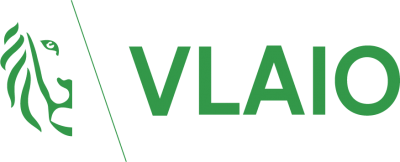Topics
We organise our actions in six thematic & strategic agendas:
Strategic Agendas:
Bio-economy
Circular Construction
Chemicals/Plastics
Manufacturing Industry
Food Chain
Water Cycles
Seven leverages provide additional support:
Leverage effects:
Lever Policy Instruments
Lever Circular Procurement
Lever Communication
Lever Innovation & Entrepreneurship
Lever Financing
Lever Jobs & Skills
Lever Research
What, why and how?
Why are we pursuing a circular economy?
Future visions 2050
How do we see our circular future?
About our management
Who steers what at Flanders Circular?
Lever
Circular procurement
Leading organizations: The Agency for Facility Operations and team Circular Flanders
Importance
The procuring activities of both businesses and government institutions play a crucial role in promoting and accelerating the transition to a circular economy. In the EU alone, public procurement constitutes approximately 14% of the Gross Domestic Product. Integrating circular economy principles into the drafting and execution of contracts and procurement can lead to significant progress.
Obstacles
Just like the trailblazers in technological development, awareness, policy-making, financing, and other aspects of the circular economy, pioneers of circular procurement face various challenges. Implementing circular procurement within the confines of public procurement legislation introduces additional obstacles, but at the same time, it opens doors to new possibilities.
In the context of our efforts to encourage circular procurement, we aim for robust contracts and government tenders that not only promote the circular economy but are also firmly rooted in legal, financial, and economic security. This holds true even in situations where collaboration with suppliers is at risk of derailing.
- How can a complex financing model from the circular economy be effectively implemented within a contract or government tender?
- How can an organization establish a solid as-a-service contract while also being prepared for potential deviations from the contract? As-a-service, full-service, pay-per-use, leasing, and product-service combination models offer significant opportunities in the circular economy, but they also come with risks. For example, what happens if the supplier goes bankrupt in the case of leasing, and how should situations be handled where the actual usage after a year of contract duration is considerably lower than initially anticipated, rendering a financially viable pay-per-use model no longer feasible?
Stronger together
The lever circular procurement is the ideal place to work towards solutions in this direction. By professionalizing circular procurement and leveraging joint procurement whenever possible, the power of circular procurement can be further enhanced.
For public procurement, procurement centers focusing on circular procurement can exert significant influence in mainstreaming the circular economy. A procurement center can ensure that its circular framework agreements can be used by many other government entities with minimal administrative burden. This way, other often smaller and less financially robust government entities don't have to struggle through the complexity of public procurement legislation and the circular economy.
This approach of professionalization and collective purchasing also receives due attention within the context of circular procurement.The websites https://aankopen.vlaanderen-circulair.be/en and https://overheid.vlaanderen.be/duurzame-innovatieve-overheidsopdrachten consolidate a wealth of information for those interested in making circular procurements. The results of the circular procurement lever, which can be beneficial for other procurers, are regularly added to and updated here.
A cooperation between the Flemish government and the Dutch central government should also make it possible in the future to offer criteria for socially responsible public procurement ("SRPP") on a user-friendly and dynamic web platform. Criteria for circular public procurement can be channeled towards this goal, ensuring they reach a wide range of procurers and have a maximum impact.
















